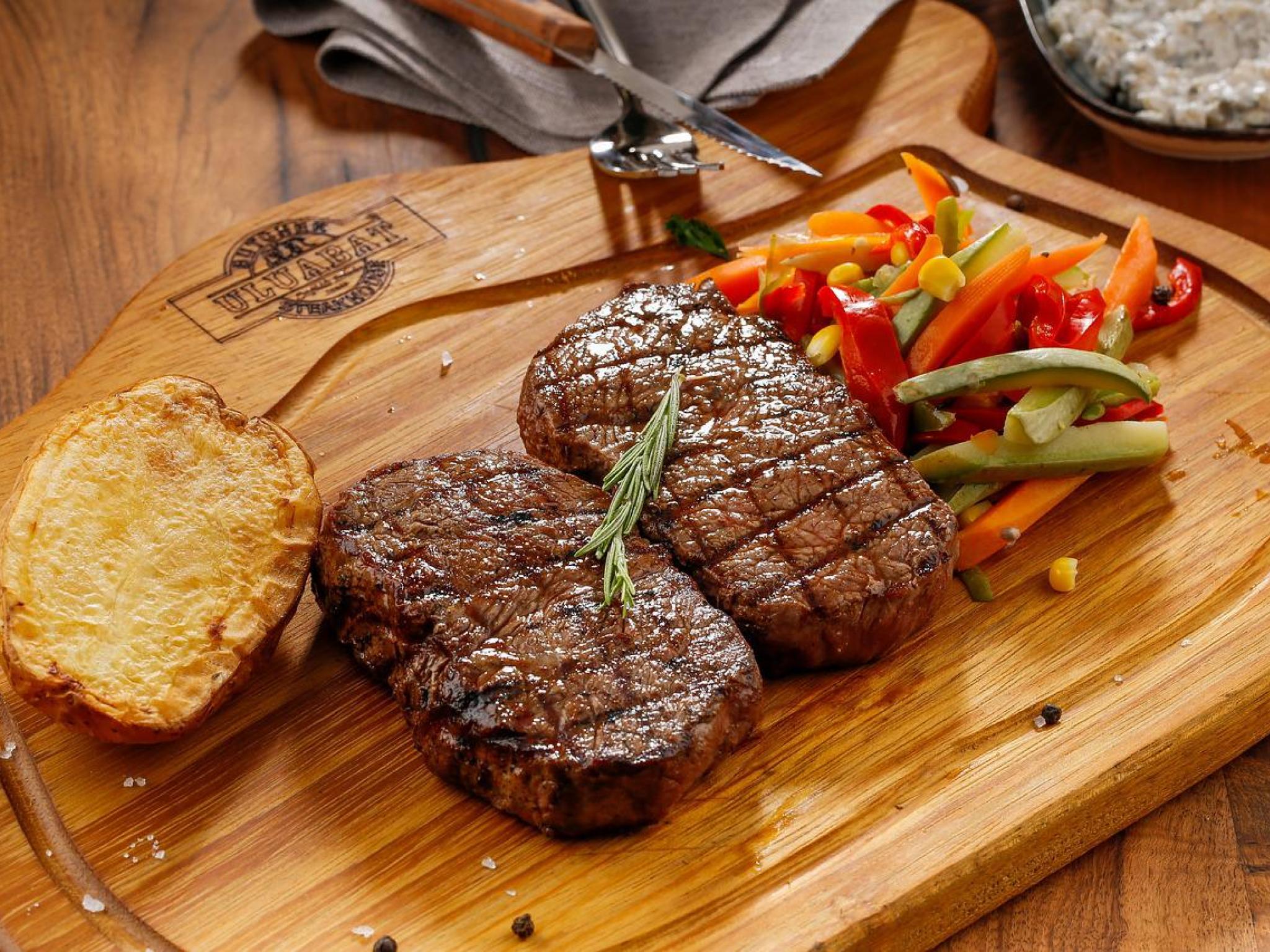
Benzinga’s weekly Stock Wars matches up two leaders in a major industry sector with the goal of determining which company is the better investment.
This week, the duel is between two restaurant chains: Darden Restaurants, Inc. (NYSE:DRI) and Dave & Buster’s Entertainment Inc. (NASDAQ:PLAY).
The Case For Darden Restaurants: Bill Darden was a 19-year-old in Waycross, Georgia, when he opened his restaurant The Green Frog in 1938. Thirty years later, Darden opened the first Red Lobster restaurant in Lakeland, Florida, growing it into a small chain. General Mills, Inc. (NYSE:GIS) acquired Red Lobster in 1970 and retained Darden as a vice president. Over time, this division expanded to the point that it became a separate company in 1995, with shares trading on the NYSE.
Today, Darden operates eight national restaurant chains — Bahama Breeze, Cheddar's Scratch Kitchen, Eddie V’s, LongHorn Steakhouse, Olive Garden Italian Restaurant, Seasons 52 and Yard House — and more than 1,800 eateries; the company sold Red Lobster in 2014.
Among its recent corporate achievements, the company announced last December that Chairman and CEO Gene Lee is stepping as chief executive on May 29 and will continue to serve as chairman in a non-executive role, with President and COO Rick Cardenas taking over as CEO. Last September, the company’s philanthropic foundation made a $2 million grant to 10 food banks for the acquisition of a 26-foot vehicle that can transport 12,000 pounds of food at a time.
In its most recent earnings report, the fiscal year 2022 third-quarter data published on March 24, Darden Restaurants reported total sales of $2.4 billion, up from $1.7 billion one year earlier, and net earnings of $247 million versus the $128.7 million from the previous year. The quarter’s diluted net earnings per share from continuing operations was $1.93, up from 98 cents one year earlier.
"This was a quarter of stark contrasts and I'm pleased with our performance in this highly volatile environment," said Lee. "It began with record sales in December. However, the omicron variant significantly impacted guest demand, restaurant staffing and operating expenses in January. I am proud of the job our restaurant teams did managing through a difficult operating environment. They remained focused on executing at the highest level and delivered strong sales in February as the environment improved."
Darden Restaurants shares opened for trading on Wednesday at $131.50, sandwiched between the 52-week range of $116.04 and $164.28.
See Also: The complete Benzinga Stock Wars series
The Case For Dave & Buster’s: David Corriveau and James "Buster" Corley opened their first establishment in Dallas in 1982. Seven years later, Edison Brothers Stores acquired majority ownership and financed a chain expansion. The company went public in 1995, but was taken private when it was acquired by the private equity firm Wellspring Capital Management in 2006; it returned to being publicly traded in 2014.
Today, the chain operates 142 locations in 40 states, Puerto Rico and Canada’s Ontario province. Each location has a dining room and bar and an entertainment center for games and viewing televised sports and events.
Among its recent corporate developments, the company announced plans to acquire Main Event family entertainment chain from Ardent Leisure Group Limited and RedBird Capital Partners for $835 million, with Main Event CEO Chris Morris taking over as Dave & Buster’s chief executive. Last month, the company teamed with World Wrestling Entertainment, Inc. (NYSE:WWE) in an agreement that brings every WWE Premium Live Event (pay-per-views) to Dave & Buster's locations, beginning with WrestleMania 38; a similar partnership was signed with UFC in February.
In its most recent earnings report, the fourth-quarter data published on March 28, Dave & Buster’s recorded $343.1 million in revenue, up from $116.8 million one year earlier, and a net income of $25.6 million versus a net loss of $56.7 million in the previous year. The 52-cent earnings per share was an improvement over the $1.19 loss in the fourth quarter of 2020.
Kevin Sheehan, Dave & Buster’s board chairman and interim CEO, stated that the company “generated a double-digit adjusted EBITDA increase in the year driven, in part, by our strong focus on process improvement and lean initiatives across our business. This company has significant upside potential and with our continued focus on innovation, growth and value creation, we are driving toward unlocking that value. We are optimistic about the future and look forward to sharing our ongoing progress with everyone.”
Dave & Buster’s shares opened for trading on Wednesday at $46.55, sandwiched between the 52-week range of $29.83 and $52.54.
The Verdict: According to data from the National Restaurant Association, the restaurant industry totaled $799 billion in sales during 2021, down $65 billion from 2019's pre-COVID-19 pandemic levels. The industry employed 14.5 million people last year, down 1 million from pre-pandemic levels. And 90,000 restaurant locations temporarily or permanently closed in 2021.
Both Darden Restaurants and Dave & Buster’s have moved into what is hopefully a post-pandemic era with gusto. Of course, the threat of the coronavirus has been replaced with the harsh reality of inflation, supply chain disruptions and labor shortages — three headaches that plague companies in general and restaurant chains in particular.
Still, both companies appear to be holding their own through the unprecedented challenges facing their industry. Dave & Buster’s appears to be more aggressive in staking out new opportunities — the company waded into the non-fungible token waters last fall — while Darden Restaurants is keeping to a formula that works.
For this Stock Wars duel, the verdict is a tie. These companies fully understand their environment and have responded accordingly. What will happen next to the restaurant industry if high inflation persists and the economy weakens can be debated, but for the moment long-haul investors may want to take some time to consider both of these respected and well-run companies.
Photo: Gurkan Erol / Pixabay







